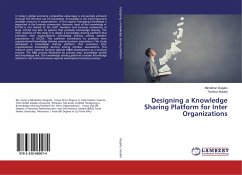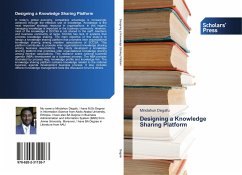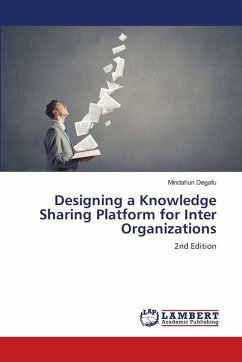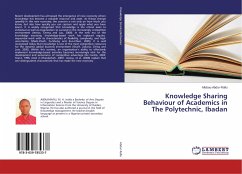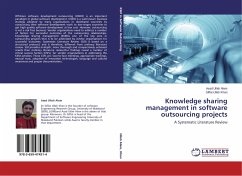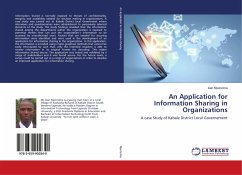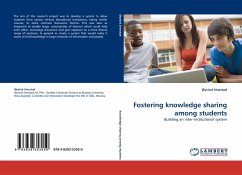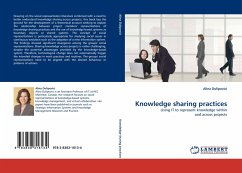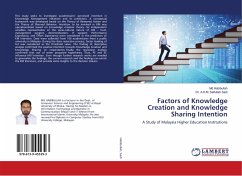
Factors of Knowledge Creation and Knowledge Sharing Intention
A Study of Malaysia Higher Education Institutions
Versandkostenfrei!
Versandfertig in 6-10 Tagen
36,99 €
inkl. MwSt.

PAYBACK Punkte
18 °P sammeln!
This study seeks to investigate academicians' perceived intention in Knowledge Management initiatives and its predictors. A conceptual framework was developed based on the Theory of Reasoned Action and the Theory of Planned Behavior. Intention to be involved in KM was operationalized based on knowledge creation theory. Six independent variables representative of the socio-cultural nature of KM - trust, management support, decentralization, IT support, Performance Expectancy, and Effort Expectancy were considered as the predictors of KM intention. Data were collected from 156 academicians from ...
This study seeks to investigate academicians' perceived intention in Knowledge Management initiatives and its predictors. A conceptual framework was developed based on the Theory of Reasoned Action and the Theory of Planned Behavior. Intention to be involved in KM was operationalized based on knowledge creation theory. Six independent variables representative of the socio-cultural nature of KM - trust, management support, decentralization, IT support, Performance Expectancy, and Effort Expectancy were considered as the predictors of KM intention. Data were collected from 156 academicians from a public university in Malaysia. During the data reduction process, factor loading of 0.4 was considered as the threshold value. The finding of descriptive analysis confirmed the positive intention towards Knowledge Creation and Knowledge Sharing of respondents. Finally, the regression analysis confirmed that out of seven proposed hypotheses, Trust, PE and EE influence KM Intention. Even though further research works are needed to generalize the findings, the current research and the findings can enrich the KM literature, and provide some insights to the decision makers.



